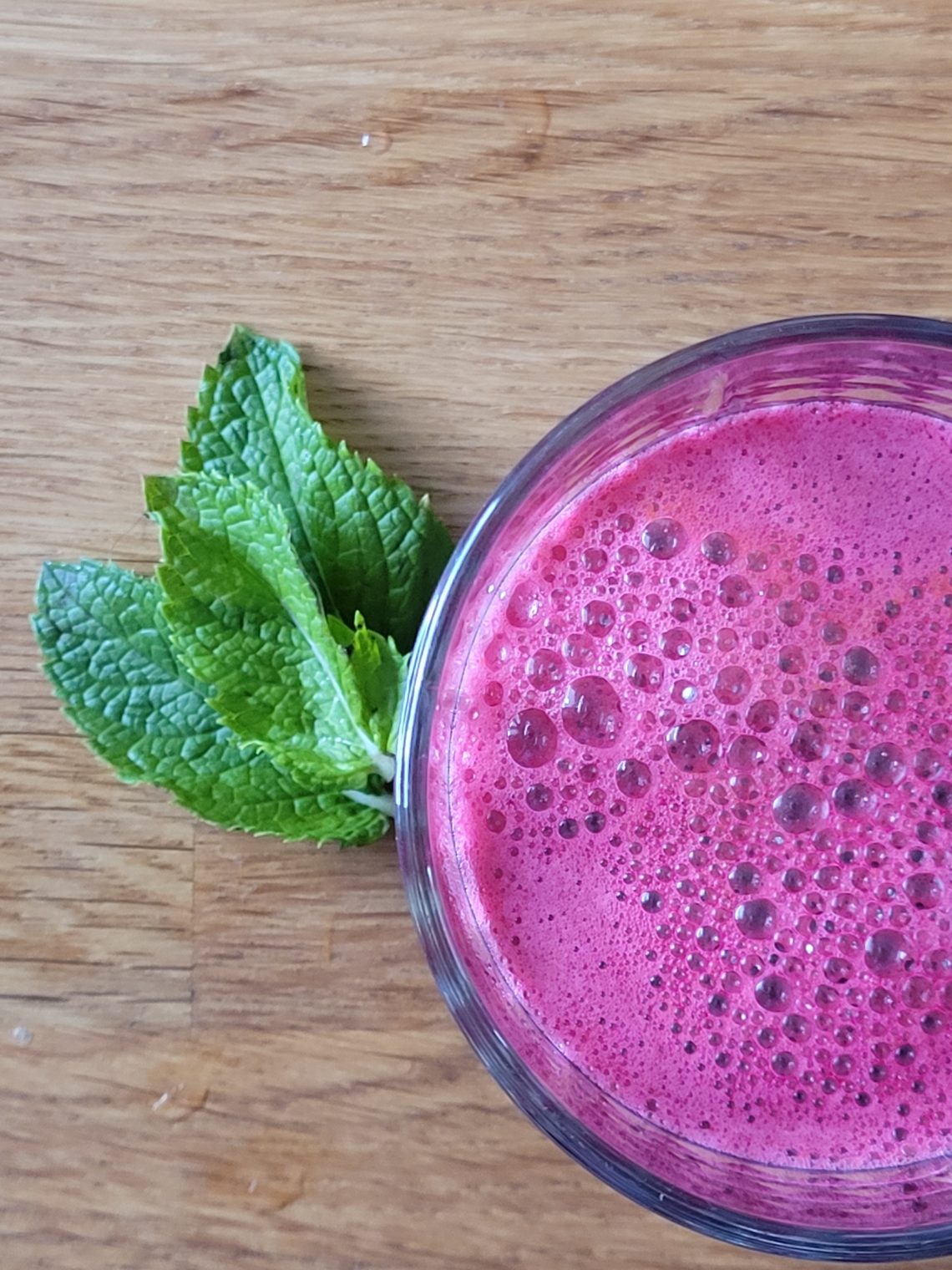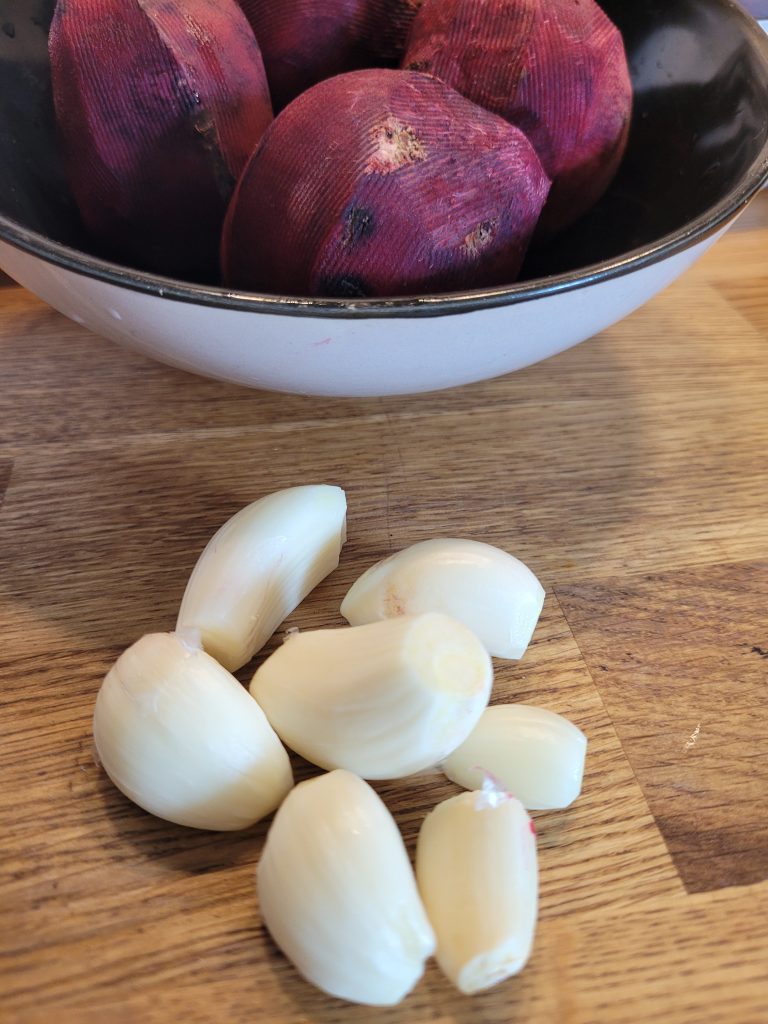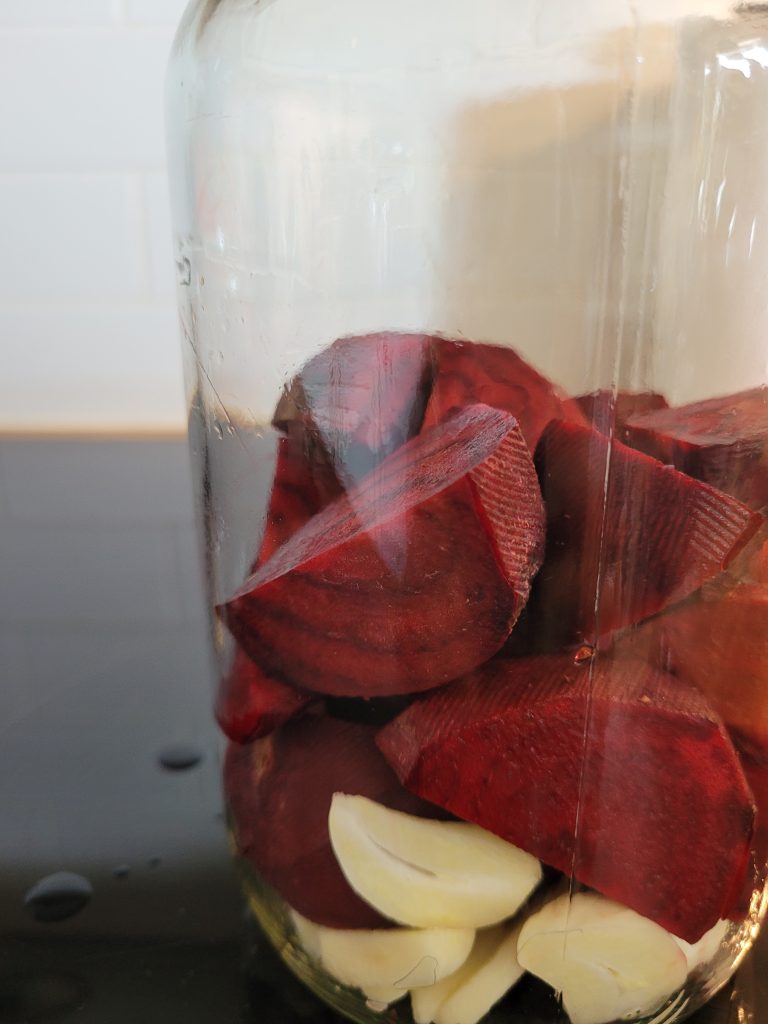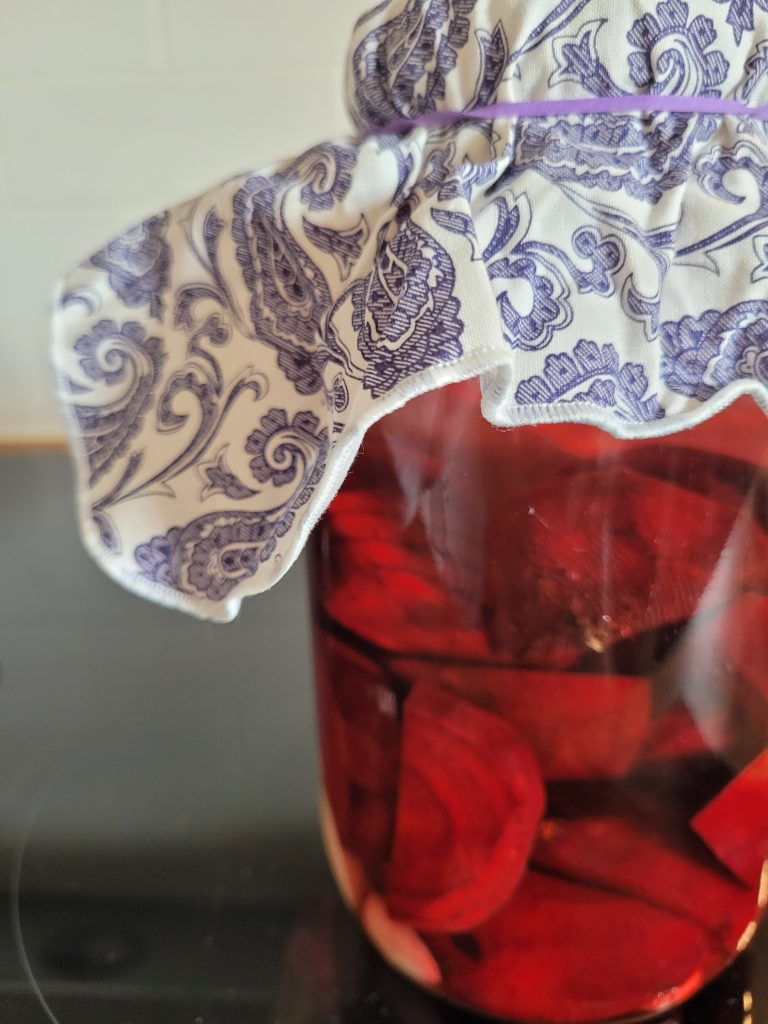
Food power #2 – beet kvass (sourdough)
Beet Kvass – Cheers to Health!
Another important probiotic for health is homemade beet kvass. You can find the recipe below, but first, a few words about its benefits:
- It’s a natural probiotic containing lactic acid bacteria.
- Rich in folic acid (vitamin B9, folate), which supports the nervous system.
- Contains significant amounts of vitamin C and iron (essential for proper iron metabolism and anemia prevention).
- Acts as a potent antioxidant due to the presence of betaine, which neutralizes free radicals.
- Additionally, it contains vitamins A, E, B6, B3 (niacin), potassium, zinc, and magnesium.
Beet kvass has anti-inflammatory and antioxidant properties, boosts the immune system, helps lower blood pressure, benefits the skin, cardiovascular system, liver, aids recovery from anemia, and aids digestion.
We should drink about half a glass a day, preferably between meals 🙂
However, there are some contraindications to drinking fermented beet kvass. It’s not recommended for individuals with kidney stones and gout (beets contain oxalates), as well as those with low blood pressure. People with diabetes should also avoid it due to the high natural sugar content in beets.
Attention: People with sensitive digestive systems and those who have not previously included fermented products in their diet may experience diarrhea after consuming beet kvass. Therefore, similar to kombucha, they should start with 2 tablespoons per day, gradually increasing the amount to half a glass a day 🙂



Recipe: 1.5 kg of small preferably organic beets 1 medium head of garlic 2 liters of water (previously boiled and cooled) 1 tablespoon of Klodawa salt (or any non-iodized salt)
Peel and chop the garlic into small pieces, place it at the bottom of a sterilized container. Then, peel the beets, cut them into chunks, and place them on the garlic. You can add two bay leaves for flavor and a few allspice berries. Slowly pour the lukewarm boiled water with salt over everything and cover with gauze or a ceramic plate. Set it aside in a warm place.
After two to three days, foam will appear on the surface (a sign that the fermentation process is taking place). Remove the foam with a wooden spoon, cover the container, and leave it for another four days. The whole beet fermentation process takes five to seven days, sometimes longer. When it’s ready, strain the liquid, and you can use the beets for soup or salad – no waste! 🙂
Pour the liquid into clean dark bottles. If you want the kvass to last longer, add a little bit of oil or olive oil to the bottles. Store it in a cool place – I always keep it in the fridge 🙂
Enjoy!




